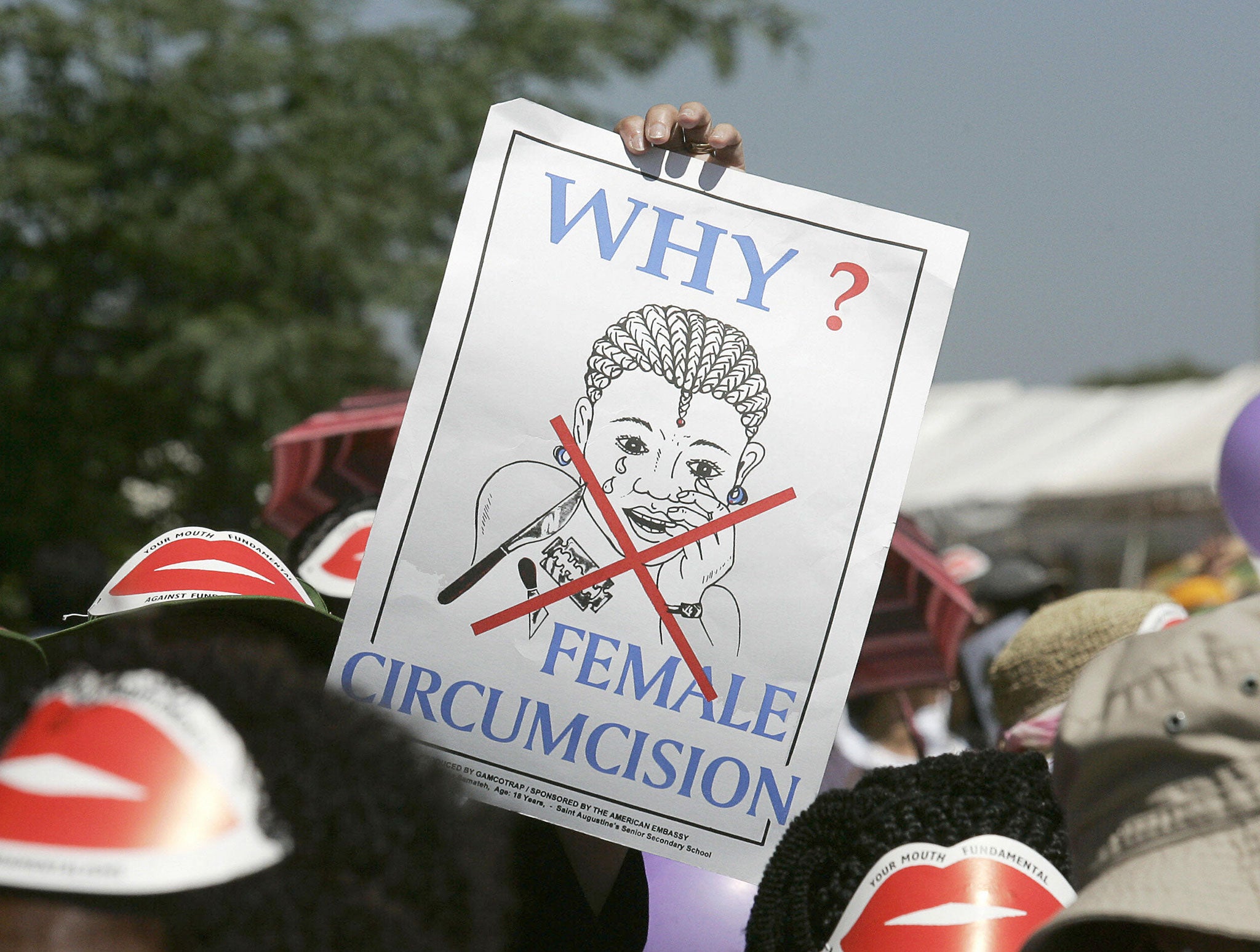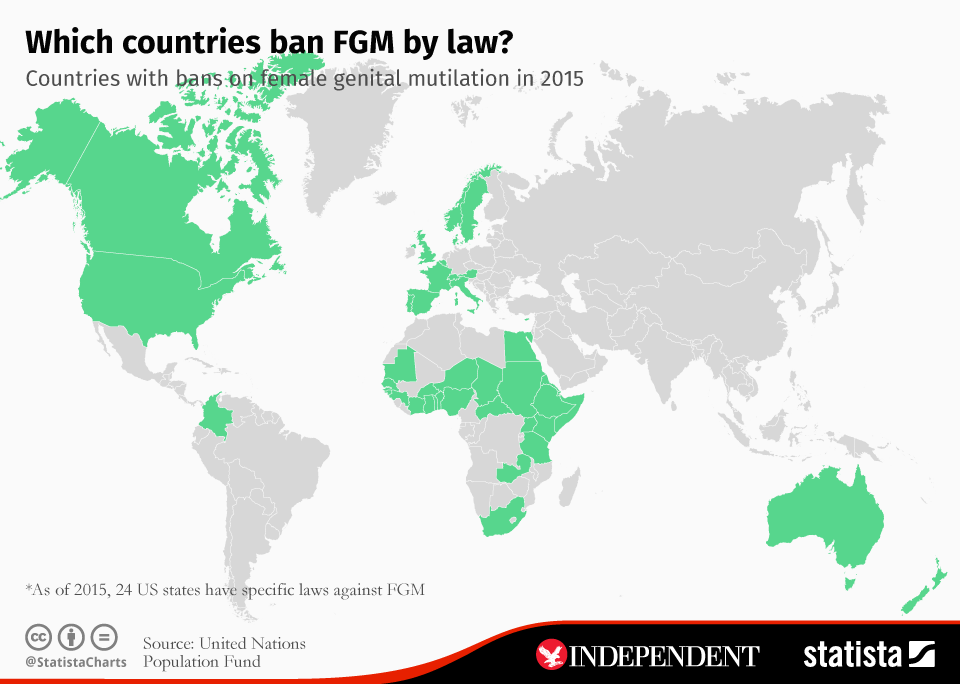Female genital mutilation is a religious right claim lawyers in first US case on the practice
Two doctors and one of their wives charged with subjecting two seven-year-old girls to genital cutting

Your support helps us to tell the story
From reproductive rights to climate change to Big Tech, The Independent is on the ground when the story is developing. Whether it's investigating the financials of Elon Musk's pro-Trump PAC or producing our latest documentary, 'The A Word', which shines a light on the American women fighting for reproductive rights, we know how important it is to parse out the facts from the messaging.
At such a critical moment in US history, we need reporters on the ground. Your donation allows us to keep sending journalists to speak to both sides of the story.
The Independent is trusted by Americans across the entire political spectrum. And unlike many other quality news outlets, we choose not to lock Americans out of our reporting and analysis with paywalls. We believe quality journalism should be available to everyone, paid for by those who can afford it.
Your support makes all the difference.Defence lawyers will argue female genital mutilation is a religious right in the first ever federal case on the practice in the US.
Two Detroit doctors and one of their wives have been charged with subjecting two seven-year-old girls to genital cutting.
The defendants are part of a religious and cultural community called Dawoodi Bohra, an Islamic sect based in India, which is accused of practicing FGM.
It is the first federal case of its kind in the US, where FGM was banned in 1996.
Dr Jumana Nargarwala, 44, is alleged to have carried out the practice on young children for 12 years.
Dr Fakhruddin Attar, 53, is accused of letting Nargarwala use his clinic to carry out the procedure, while his wife Farida Attar, 50, is accused of holding the hands of at least two victims during the cutting procedures to comfort them.
They were charged with conspiracy, female genital mutilation and aiding and abetting.

Their defence lawyers plan to put forward a religious freedom argument.
They maintain the doctors did not actually cut the girls, just scraped their genitalia, and argue the defendants are being persecuted by practicing their religion.
If the defence can show the procedure was just a nick and caused no harm, the defendants could be acquitted on religious grounds, legal experts told the Detriot Free Press.
According to court documents, the girls said they were told they were going to Michigan, for “a special girls' trip”. One of the girls said that after the procedure “she could barely walk, and that she felt pain all the way down to her ankle”.
The girls said their parents told them not to talk about what happened and one couple described it as a "cleansing" of extra skin.
The documents said the girls had scarring and abnormalities on their clitorises and labia minora.
Consensus among the medical community is that the practice of removing or injuring female genital organs has no known health benefits.
However, it has been performed on more than 200 million women and girls in 30 countries, according to the World Health Organisation (WHO).
"It reflects deep-rooted inequality between the sexes and constitutes an extreme form of discrimination against women. It is nearly always carried out on minors and is a violation of the rights of children," according to the WHO.
In 2012, a report by the US Centers for Disease Control and Prevention found roughly 513,000 women and girls in the United States were at risk of undergoing FGM, which was more than twice an earlier estimate based on 1990 data.
Join our commenting forum
Join thought-provoking conversations, follow other Independent readers and see their replies
Comments